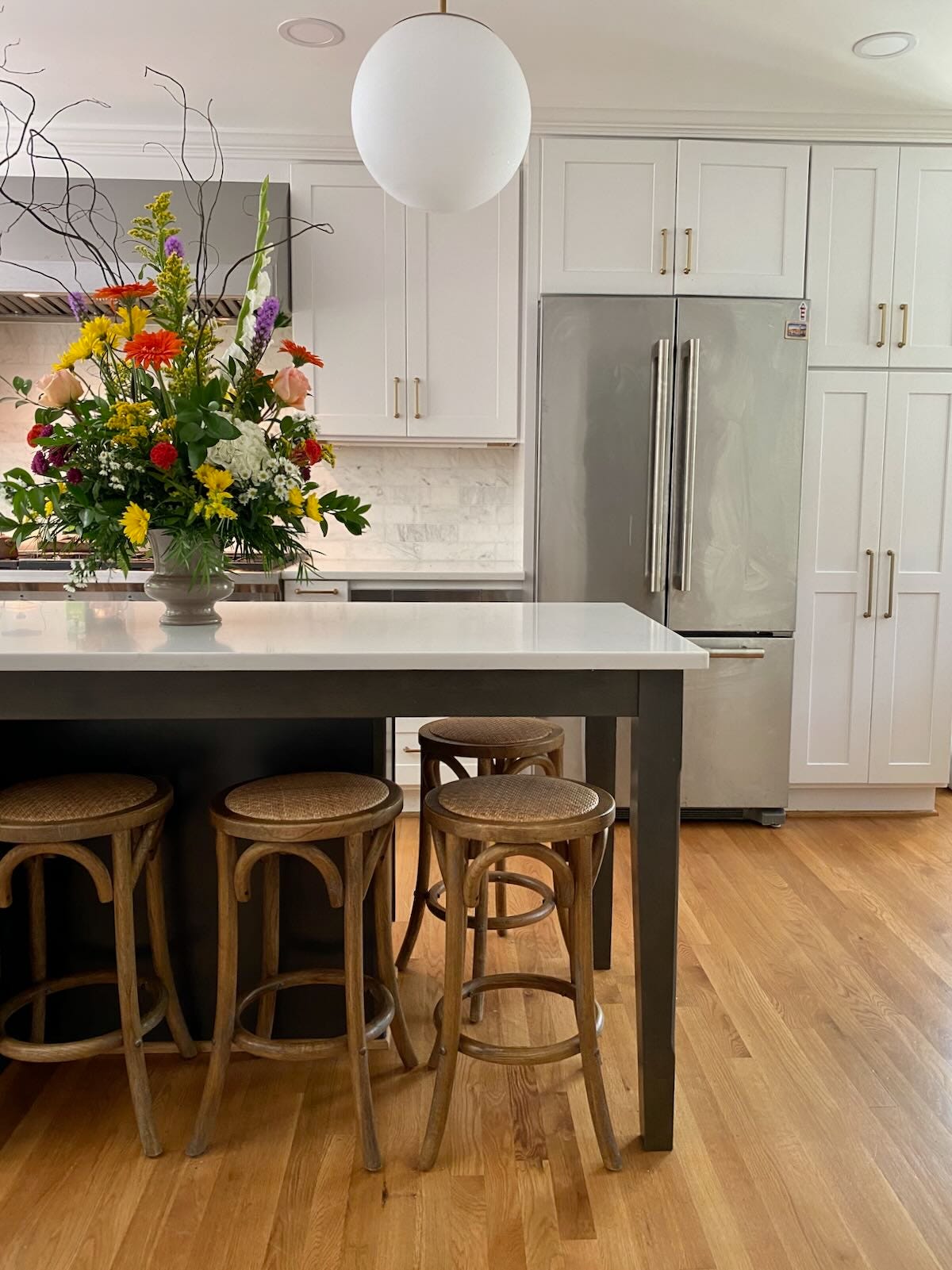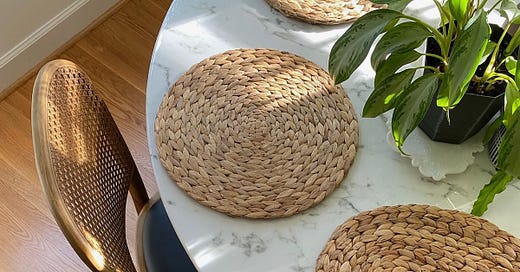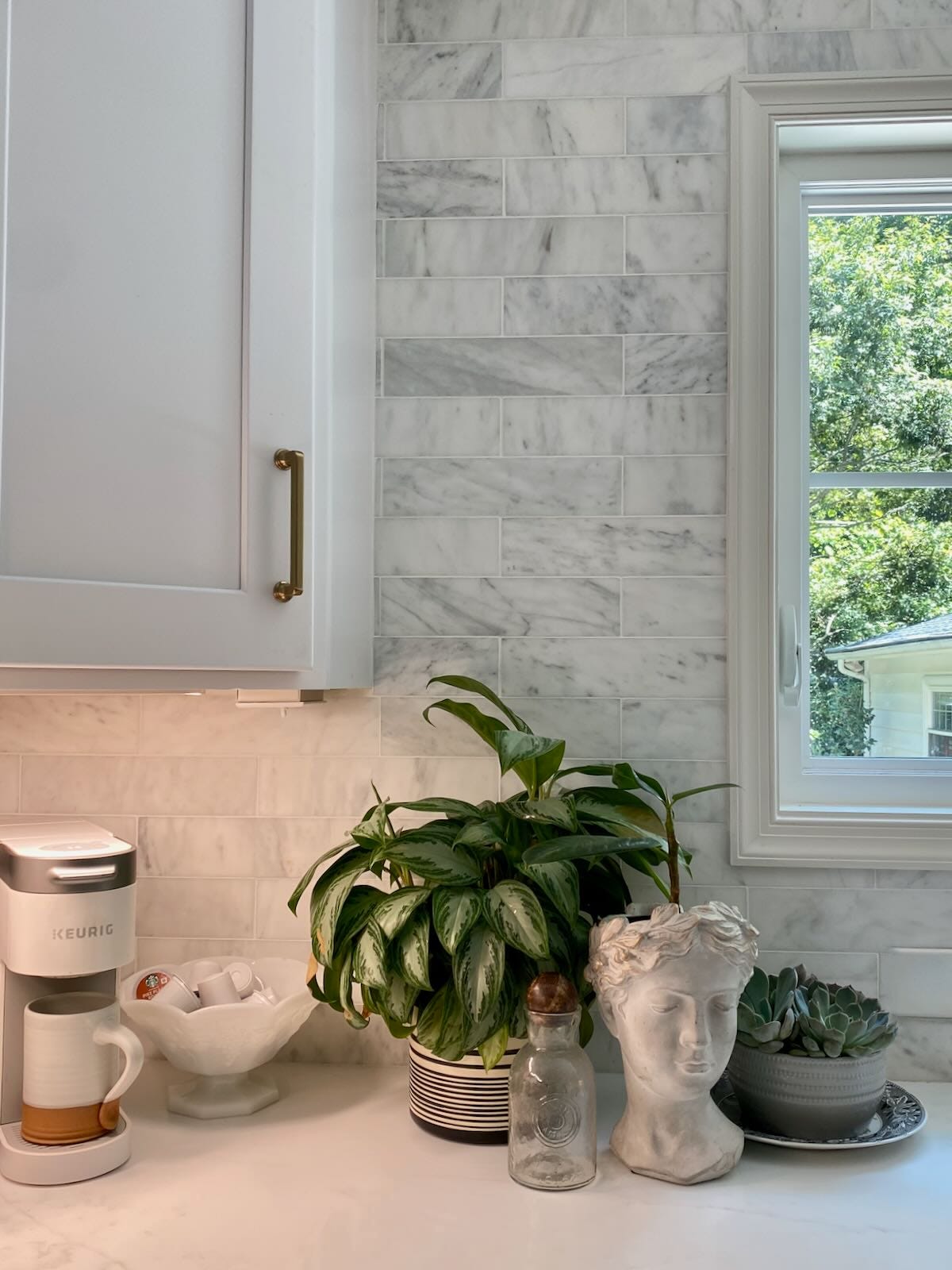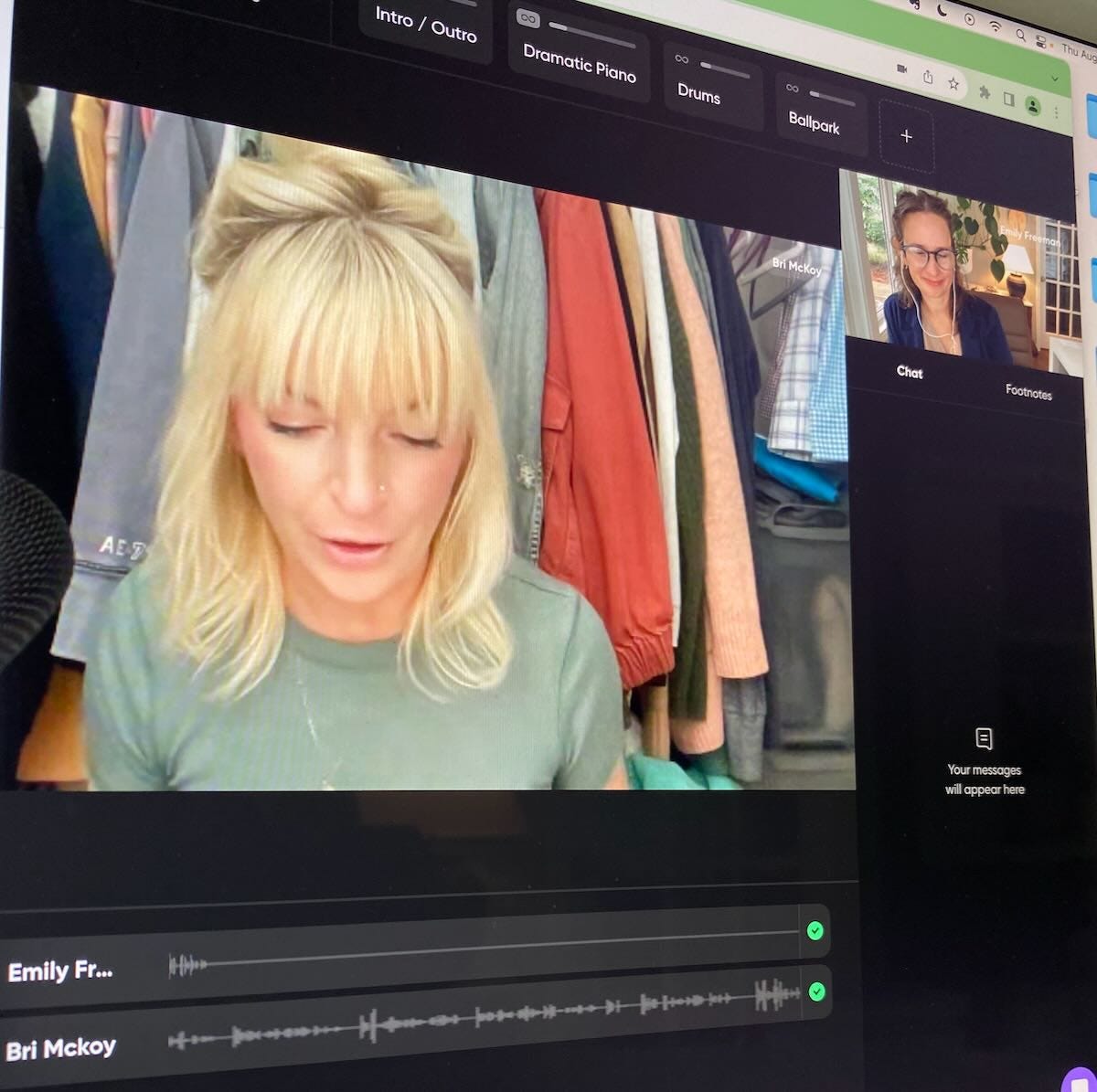The Decision Fatigue Chronicles Vol. 01
From home cooking to spiritual direction, here's how I'm finding peace in the most stressful room of my house
This is our first installment of The Decision Fatigue Chronicles, a series I’ll dedicate to specific areas of decision fatigue that I personally struggle through and record my process here. If you like what you read and want to support my work, consider becoming a free or paid subscriber. This post is available for all so feel free to share it!
One of the phrases I repeat most often is this: What matters more than the decisions you make is the person you’re becoming.
This can be a comfort if you feel stuck between two potential paths and feel pressure to pick the exact right one. But it may also be frustrating to hear if all you want is some simple direction about what to do next.
In my first essay for The Soul Minimalist I set an intention to explore communally what discernment looks like in real time to the extent that I am able. That means sometimes I’ll share things from the perspective of a spiritual director, teacher, or guide. Other times I’ll write from the middle of my own decision fatigue and share how I hope embracing soul minimalism will help to quiet the chaos.
Today, I’m doing both: writing as a person feeling overwhelmed in her kitchen and as a spiritual director in self supervision. Sound like fun?!
Let’s see how this goes.
The kitchen is the heart of the home, they say. To that, I say yes, and I’ve got the palpitations to prove it.
The truth is I love my kitchen, I do. I’m grateful for the space, the white counters, the natural light from windows on three sides.
I also love food: I like to eat it, I don’t mind shopping for it, and I especially love watching other people make it. (The Bear, Chef’s Table, Cedric Grolet on Instagram).
With the act of cooking itself, though, it gets complicated. These oft quoted words about writing come to mind:
“I write with great difficulty, but have managed somehow to accomplish 40 short stories . . . and five novels within the last three years, and a lot of special unsigned articles . . . Don't like to write, but like having written. Hate the effort of driving pen from line to line, work only three hours a day, but work every day.” —Frank Norris
Many of us could say we cook with great difficulty but have managed somehow to feed ourselves and/or our people for decades.
We don’t like to cook, but like having cooked.
In a conversation with cookbook author Bri McKoy on the podcast this week, we talked about The Next Right Thing in the kitchen. I always plan in advance for these interview episodes by reading all or most of the books (if the guest has written one) and plan out the flow of conversation. But of course I never know exactly how things will go and this time, we went someplace I didn’t expect.
While we were talking about her new cookbook (The Cook’s Book is so good you should get it!) and about the importance of understanding that you are the most important item in your kitchen, what I realized we were actually talking about was all the things that keep us from trusting ourselves.
This took me down a rabbit hole of introspective thought, a journey I’m going to bring you on with me (you’re welcome and I’m sorry).
Because there’s always the thing we’re talking about, and then there’s the thing beneath the thing that influences the thing we’re talking about. And that’s what I want to talk about today.
This is how personal reflection works. This is not a formula (do this first, second) but it is a record of how this one conversation led to a greater understanding of myself and (hopefully) more self-compassion.

Inciting incident - What happened?
This sounds dramatic to call it an inciting incident but it’s just a way to describe the starting point. In this case it was reading Bri’s book and following that up with a conversation with her on the podcast.
During that conversation, I asked Bri what she learned during the process of writing her book.
Bri: [I learned] I can make really good meals with what I know right now, and I don’t need to have this encyclopedia knowledge, the dictionary of cooking, available to me . . . I have what I need and I am going to teach this over and over and over again.
Emily: I already have what I need. That is so profound. I just have to repeat it because for you to say, “I’m a cookbook author now, therefore I need to know everything there is to know about cooking.” That could have really held you back if you had thought that was true.
Bri: I really did think, well, here we go. I need to go to school now. I need go to France. That’s why for me, cooking was so intimidating, because I just thought I have to know everything and I need to have every kitchen technique and every tool and every meal I make has to be five stars. That’s just not going to happen . . . We’re just home cooks trying to get into our kitchen every day trying to feed our people, and sometimes the meal is going to be a big crowd pleaser and sometimes it’s just nourished your people.
Curiosity - What do I notice?
What struck me about this exchange (and our conversation after this) is how many areas of life carry the potential for us to feel inadequate or stuck. Some of those things are actions we have to take no matter what, like deciding what to cook for dinner. But then there are those things that we want to do (like Bri’s decision to write a cookbook) but might be afraid to do because we don’t feel like we have what it takes.
Our feelings of inadequacy keep us from trying things we may love, things that may be an important part of our vocation, not to mention our spiritual formation.
Energy - What feels alive, charged, or animated?
As Bri and I continued to talk, I shared with her about how I have a particular pan in my cabinet that I was so proud to research and then purchase. I watched all the videos about how to season and clean it, but after only a few uses I either cooked on it wrong or washed it wrong or looked at it wrong and somehow, it turned a strange color and I got mad at it and haven’t used it since.
As I told the story, I could feel some fire in my body and I checked the clock to see how long we had been recording. I realized if I wasn’t careful I could talk with Bri for another podcast-length amount of time all about this ding-a-ling pan and how finding it carried a lot of negative emotion for me.
Emotion - Is there a feeling or sensation attached to this energy?
We explored it a little in the episode, but I’ve mostly processed it after. When I sat with the scene of finding that expensive, unused pan in my cabinet, I had genuine feelings of shame show up connected to it.
I felt foolish for buying it in the first place then I felt dumb for wrecking it up.
I felt like I had failed for not working harder to fix it.
I felt shame for being the kind of person who spends money on something she goes on to ruin.
It’s clear I’ve given that pan a lot more power than it deserves.
So where does that leave me?
Well.
This process of self-reflection we just walked through is similar to a practice we do in spiritual direction called self-supervision.
First: If you’re unfamiliar with the terms, a spiritual director is simply a person who holds prayerful space for someone else. The task of the director, contrary to what the name implies, is not to direct the person but is to remain attentive to the Spirit of God on behalf of someone else.
God is the director and the art and practice of spiritual direction is a process by which director and directee discern together what God might be up to in the directee’s life.
In order to hold this kind of sacred space responsibility, it’s vital to engage various forms of supervision. Currently I have an individual supervisor and a peer group of spiritual directors. But I also regularly engage in the process of self-supervision, which simply means taking time to reflect on a session and notice how I showed up in the space.
Spiritual directors are not blank slate stand-ins. We are embodied and we bring our own life experience, emotion, bias, and stories into the room. Self-supervision is simply a way to create space for these things and offer compassion for ourselves and how we may or may not have responded in the moment.
I recently read a comprehensive collection of essays and articles written by spiritual directors of color. It’s called Kaleidoscope: Broadening the Palette in the Art of Spiritual Direction, and in it, spiritual director Daeseop Daniel Yi lists a series of questions spiritual directors can ask ourselves as we reflect upon a session with a directee.
Some of these questions mirror this loose framework I’ve shared here, naming and noticing curiosity, energy, and emotion.
Here are a few of those questions:
What are the significant areas of unfreedom that surfaced during the session? (What happened?)
What did I notice about myself and the directee and God’s presence in the session? (What do I notice? What feels alive, charged, or animated?)
What am I afraid of and what to I enjoy? (Is there a feeling or sensation attached to this energy?)
While of course Daeseop Daniel Yi intended these questions to be for spiritual directors, I’m submitting their usefulness for all of us as we are confronted with situations that poke, prod, bother, simmer, or disrupt.
Finding that pan in my cabinet disrupted me on the inside.
Reflection is a regular practice in my life and still, I didn't fully notice how much that unused pan bothered me, how much shame it represented that I carry into the kitchen.
Having a series of questions to ask when we notice the buzz of irritation is a helpful next right thing.
Any place where you carry or are trying to combat shame is a place where decision fatigue will eventually find you.
As it turns out, it’s exhausting to try to fight off shame while planning what’s for dinner.
I’ll leave you with a final question Daeseop Daniel Yi offered in his chapter and it could be the most important question of all, both as a spiritual director in session and as a home cook standing in her own kitchen with a ruined pan:
In what specific ways can I maintain an open, free space?
Interior freedom is always worth the work.
I don’t have a full answer yet as it applies to my life in the kitchen, but I’m carrying the question with me along the way.
I’m beginning to notice and name the spaces where I’m closed and unfree.
I’m beginning to honor and make room for my own discomfort rather than trying to explain it away.
I’m beginning to see how God welcomes all of me to the table and invites me to trade shame for laughter, peace, a light heart.
I’m beginning to take small actions in my actual kitchen—light a candle and stream music while I chop the onion—to make it feel more hospitable.
And also? I’ll be googling how to bring a carbon steel pan back to life.
The journey through this kitchen decision fatigue wasn’t linear, but thanks for taking it with me as I continue to work to articulate how our daily decisions are making our lives.
Theology is no good if it isn’t embodied in our lives. Spiritual formation doesn’t happen in our heads, y’all. It happens in our actual, daily, regular life.
It happens in our kitchens.
I would love to hear from you in the comments: Does decision fatigue show up for you in the kitchen? Can you relate to the shame pan? Has self-reflection recently revealed something surprising about your own experience?








This really resonates with me. I am trying to get back into the kitchen after offloading the responsibility to my husband during the pandemic (he's too busy professionally right now for dependable meal-making). I struggle with joint pain in my hands and wrists from an autoimmune disease and realize that this has held me back for many years in the kitchen. I had an aha moment a few weeks ago that new knives (sharper and easier to use), an electric can opener, and a few other gadgets (plus employing my eager eleven-year-old) could really help me out when cooking. I carry a lot of shame from my chronic condition, and your essay is really prompting me to consider the ways I can navigate this frustration and enjoy cooking again.
This was meandering, but isn’t that how our brains work - especially my brain as a wife and mom of three and full time home manager. I don’t always self-reflect well and, like you, I am a slow processor. Imagine my surprise the other day when what was supposed to be a short conversation with my husband about the logistics of an upcoming ladies trip (reprieve from full time mommying) turned into a 2-hour feelings dump. There was anger, there was tears, there was relief, and there was MUCH self discovery. I like to be prepared so it annoys me when I learn things about myself out loud as I’m saying them. At the end of the day, tears and all, it was a wonderful conversation that left me feeling seen and known and more connected than ever to my husband. I guess in the daily work of raising 3 young kids my decision fatigue has left me a little less introspective, and now I know if you neglect that important work, it will find a way to bubble out.